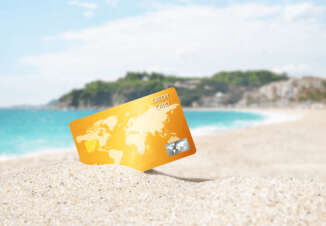The content on this page is accurate as of the posting date; however, some of the offers mentioned may have expired.

For users who spend a large part of their life travelling, credit cards make for good company. All individuals need to do is manage the whole affair smartly. Prior to actually travelling with credit cards, users must safeguard them by maintaining photocopies. It should typically be accompanied by extra copies of the ticket and other important documents. A smart move is to leave behind one copy of these documents either with a friend or family member. This is mainly done so that a lost card isn't difficult to trace.
When on international trips cancellation of a credit card could be rather difficult. Users must hence nail down on having their spouse, friend or whosoever is with them carry different credit cards. At least this will ensure it isn't troublesome to cancel a card in case of a problem. Sometimes, a single card could translate to the cancellation of every member's credit card. Reissuing a card may take anything between three to five days.
When traveling with credit cards, users must check for the automatic credit card deactivation feature as well. A handful of companies are notorious for cutting off the credit card services if the card has been used six or more times in one day. While the main intention is to prevent thieves from using the card that may have been stolen, reactivation will be a problem. It's best to have the credit card company notified beforehand about trips to various locations. Before hitting the road, users must also alter the PIN number of their credit card to a four digit one. This is mainly because there a range of foreign banks that aren't designed to accept six digit pins. It is particularly the larger banks that help in seamless exchange to foreign currency.
The front and back of a bag is probably the best location to store credit cards when traveling. Users having many credit cards can exclude the expiry date and the name inscribed on the card. When frequently shuttling between places, individuals must keep their eyes open about applied conversion fees too. Charged by most banks, the fee is so that it's seamless to convert the users' currency to a foreign one. Though it isn't always necessary that banks charge a conversion fee and in many instances they don't. Consumers possessing multiple cards must additionally opt for the company that is a deal breaker as far as the fee is concerned.





